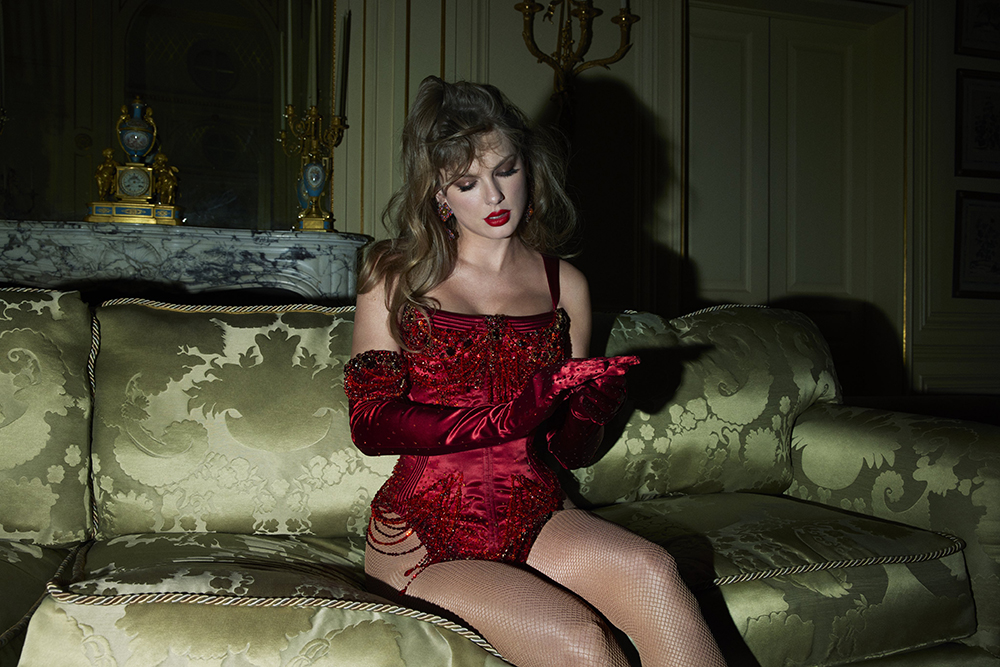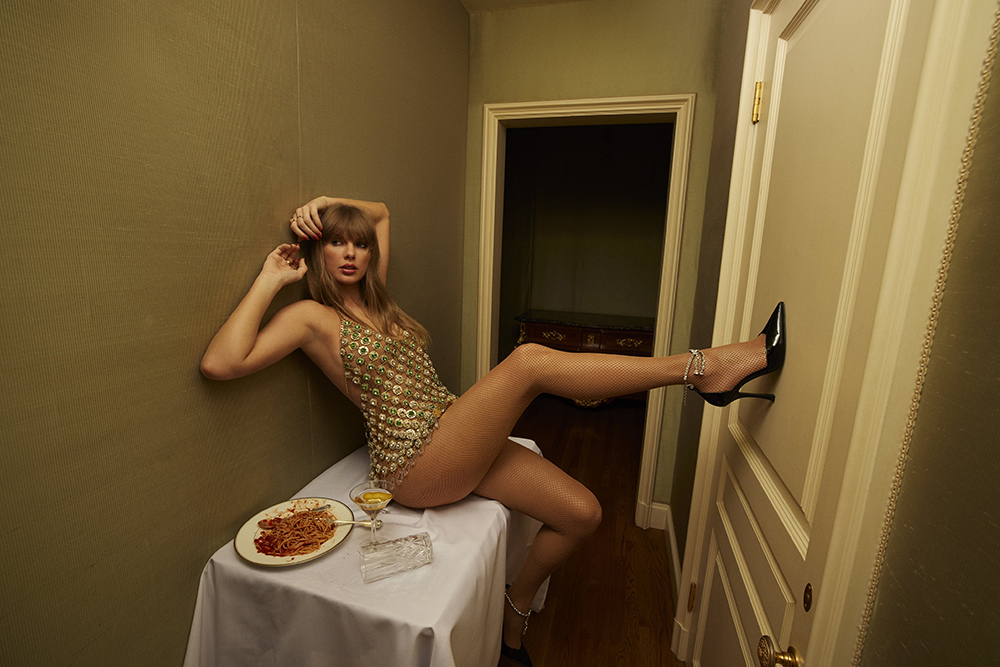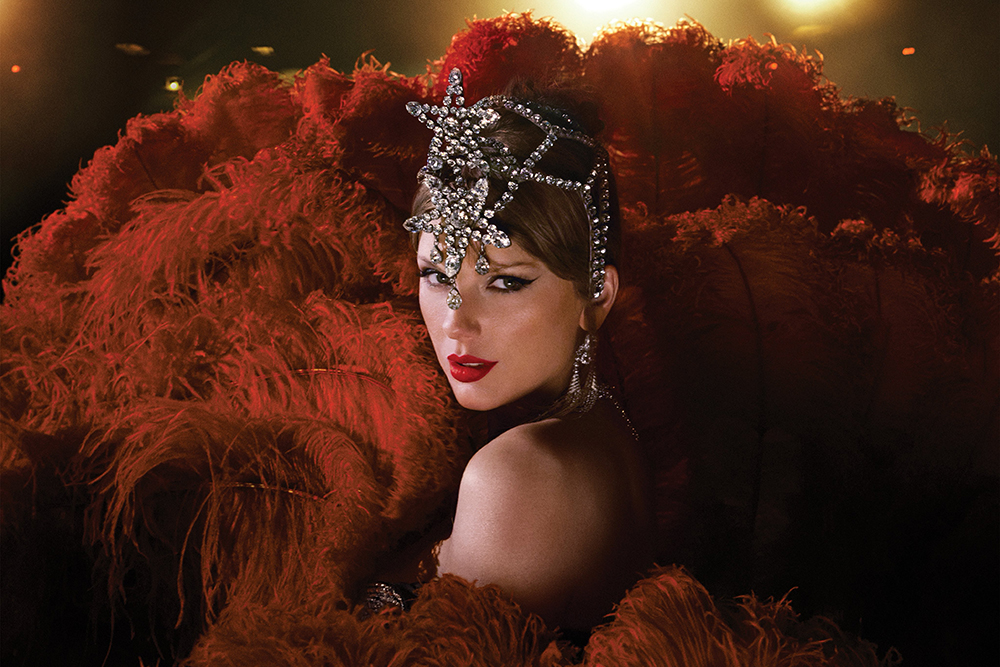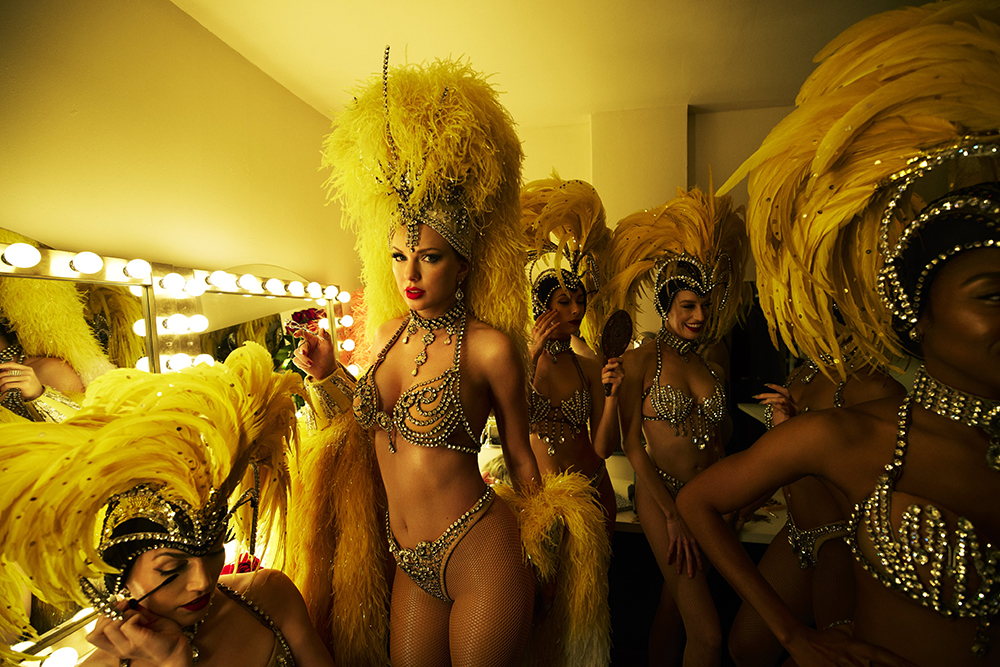Music - The Life of a Showgirl: Taylor Swift chooses clarity over chaos
By Mulder, 03 october 2025

From the first teasing wink in Travis Kelce's podcast to a quasi-premiere circuit built around reels screened in actual movie theaters, The Life of a Showgirl arrived as a media object before it became a music album, and that framework is essential to how the album is perceived. Taylor Swift uses scarcity and precision as weapons after a maximalist year, moving from the sprawling 12-track The Tortured Poets Department to a leaner 40-minute runtime that feels like a breath of fresh air after a marathon: no singles before release, no drip-feed of information, just a close-up release designed to reset expectations. The title doesn't just announce that the album broke pre-order records and triggered competitive calendar reshuffles across the industry; it emphasizes that the songs themselves reflect the discipline of the launch. Where the Eras Tour was a large-scale superstructure, Showgirl is a silhouette: clean lines, understated production, and a steady beat that favors brilliance over flash. In a catalog famous for bridges that ignite like rockets in a stadium, the new trick lies in negative space: arrangements that whittle down to bass and kick drum, breathless triplets of her voice stacked like glass, and microscopic details that reward headphones as much as car stereos.
The opening triad sketches out the mission statement with clever economy. The Fate of Ophelia seems catastrophic on paper, then veers toward a fantasy of rescue; the bars themselves tilt and overlap, as if the phrasing can't bring itself to leave its own glow. Elizabeth Taylor is both a show of force and a thesis (You're only sexy until your last hit, baby), but the production resists the temptation to cosplay 2014, slipping a soft rock chassis under a chorus that still hits the diaphragm. Opalite is the album's first real standout, with its diaphanous harmonies and fuzzy guitars that blossom into a chorus just when you think it's going to stay low-key. The significant change is not only sonic, but also editorial: after a cycle that invited careful reading of the lyrics, these songs seem to have been written to be experienced first, then decoded. Even the numerological references that obsess fans (87 + 13 = 100, the hidden megaphone, the arrowhead-shaped shadows) are now more of a garnish than the main course.

The reunion with Max Martin and Shellback could have resulted in a simple rehash of the effervescent energy of 1089, but The Life of a Showgirl is more astute: it borrows the rigor of these architects while softening the neon contours. The drums are dry, the synths are more hazy than flamboyant, and the guitar figures carry as much weight as any programmer's stroke; when the big moments arrive, it's because the structure demands it, not because the button says so. You can feel the confidence the trio has in each other's muscle memory: arrangements that collapse on a single instrument before a key change takes the chorus up a notch; bridges that know precisely when to be discreet, then strike back with higher-pitched notes than expected. After years of Jack Antonoff's vaporous atmospheres and Aaron Dessner's contemplative tapestries, this Stockholm circle produces something deliberately more refined: not a rejection, but a refreshment.
Lyrically, the album falls into two distinct streams: domestic ecstasy and reputation maintenance. The balance is more interesting than the caricature of cultural warfare suggests. On the ecstasy side, Wi$h Li$t and Honey resist fairy-tale maximalism in favor of tactile, slightly zany names: alleys, hoops, pet names that ultimately feel pleasant rather than coded. Eldest Daughter deserves its place as the fifth title without melodrama, walking the tightrope between self-flagellation (terminal uniqueness) and the mercy that comes from being seen by someone who refuses to mythologize you. On the other hand, CANCELLED! turns chronology into choreography, reframing a series of public entanglements into a dance she now directs; the talent lies not in the punchlines, but in the relief of hearing her writing as that of someone who knows she has won. “Father Figure” is a velvet-coated jab, alluding to Scott Borchetta while interpolating George Michael with a taste that will irritate her detractors precisely because it hits the mark: accelerating strings, sparkling layered harmonies, and a chorus that oscillates between memory and fable.

Actually Romantic is the most polarizing choice on the album and also the most accomplished case study of Swiftian optics. Interpreted as a scathing retort to Charli XCX, this track is deliberately petty, a crunchy late-90s FM pop song dominated by guitar, which makes you smile even more as you get annoyed listening to it. The lyrical strategy, which consists of transforming an obsessive shadow into seductive energy, echoes a trick she has been using since “Blank Space,” but here, the arrangement says as much as the lyrics: a jerky dynamic, echoing kisses under the vocals, and a bridge that purrs rather than roars, challenging you to call it overkill as it sticks in your head. The ethical debate is inevitable; the debate about craftsmanship is quickly closed. Even when she's being modest, she puts the bat's head exactly where it needs to be on the radio.
And then there's Wood, the album's shameless clown nose. The metaphors are deliberately grotesque; the jokes about thighs and magic wands will either make you laugh or sink. But listen beyond the discourse and the album's priorities become clear: wit rather than solemnity, bounce rather than bite. The brass ricochets, the rhythm guitar winks at late-70s bubble soul, and the drums refuse to take a rigid stance; it's a deliberately corny song, made unstoppable by the fact that it works. If the steel-jawed defiance of Reputation was the sound of armed pride, Showgirl's defense mechanism is a joy so pure that it disarms. This isn't immaturity, it's a strategy: after five years of analysis, she writes the kind of song that you only “understand” when you stop looking for a thesis and start taking action.

The masterpiece here, however, is more discreet. Ruin the Friendship transports us to a room in Tennessee, etches into our memories every heartbeat of an almost-kiss between teenagers, then shatters the fantasy with a phone call from Abigail about a funeral, turning the friendship zone into a ghost story. The pivot in the third verse is surgical: a single harmony thickens, the chord shape tilts, and the song's advice—better this than regret—lands like a hand on your sternum. It's the track that proves that the smaller canvas of The Life of a Showgirl isn't a diminution of the stakes, but a recalibration of how to carry them. In a year when her public discourse has been marked by volume and victory, it's the track that admits how quietly a life can tip over, without breaking the album's sunny charm.
As a reminder, the title track makes its intentions literally glorious, staging a backstage fable with Sabrina Carpenter in the role of the understudy who no longer needs qualification. Tap dancing percussion, ostentatious key changes, lyrics on the walls of portraits wishing her gone — it's Broadway via Arrowhead, and it works because it's drama, not egocentrism. When Taylor Swift declares with a straight face, “I'm immortal now,” it feels as much like a narrative conclusion as it does commercial logic: after spending years defending herself against her own legend, she writes a finale where legacy is part of the staging. This discreet demonstration is not bragging, but a passing of the torch: she literally hands over the microphone, then takes the last word anyway, because the show must go on and she is the one who built the theater.

Does The Life of a Showgirl have any weak points? A few choruses resolve exactly where your ear predicts they will, Elizabeth Taylor flirts with Reputation cosplay, and Wi$h Li$t sprinkles brand names like confetti, with a slightly too long cadence. But ultimately, it's an album that achieves its goal: to restore proportion, refine the attack, and remind you that pop discipline is an art form, not a diet. Max Martin and Shellback aren't back to reheat the sugar of the 2010s; they're back to prove that simplicity can shine as brightly as spectacle when the writing is confident and the editing ruthless. This is the best analysis we can offer of this particular era: The Life of a Showgirl is not the sound of reinvention; it is the sound of calibration, the moment when a historic global star chooses clarity over cleverness and, almost mischievously, makes that clarity the cleverest choice of all.
The Life of a Showgirl
Released: October 3, 2025
Length: 42 minutes
Label: Republic
Producer: Max Martin Shellback, Taylor Swift

